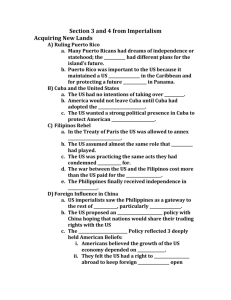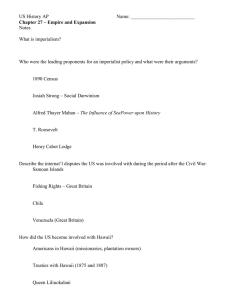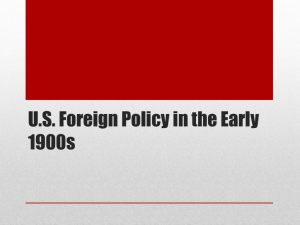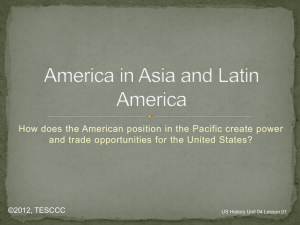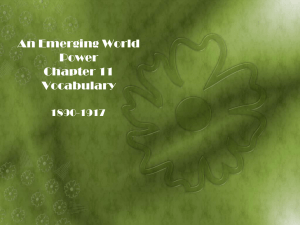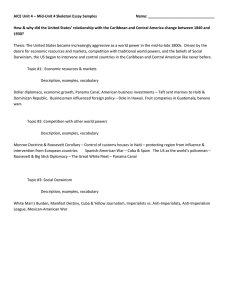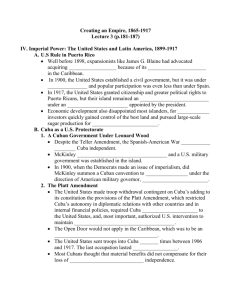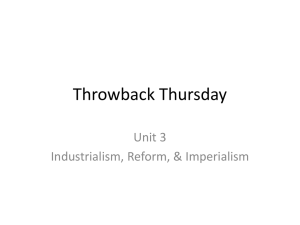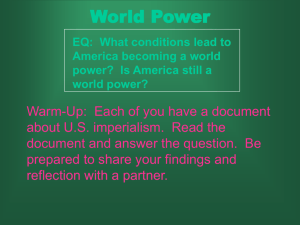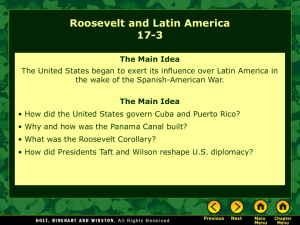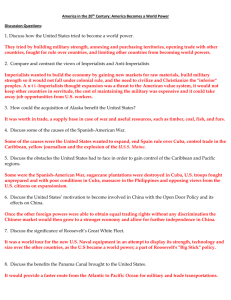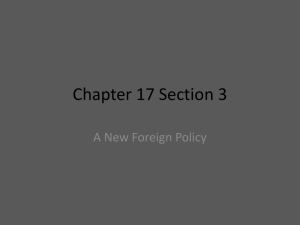11-4-Week-11-Imperialism-Spanish-American-War
advertisement
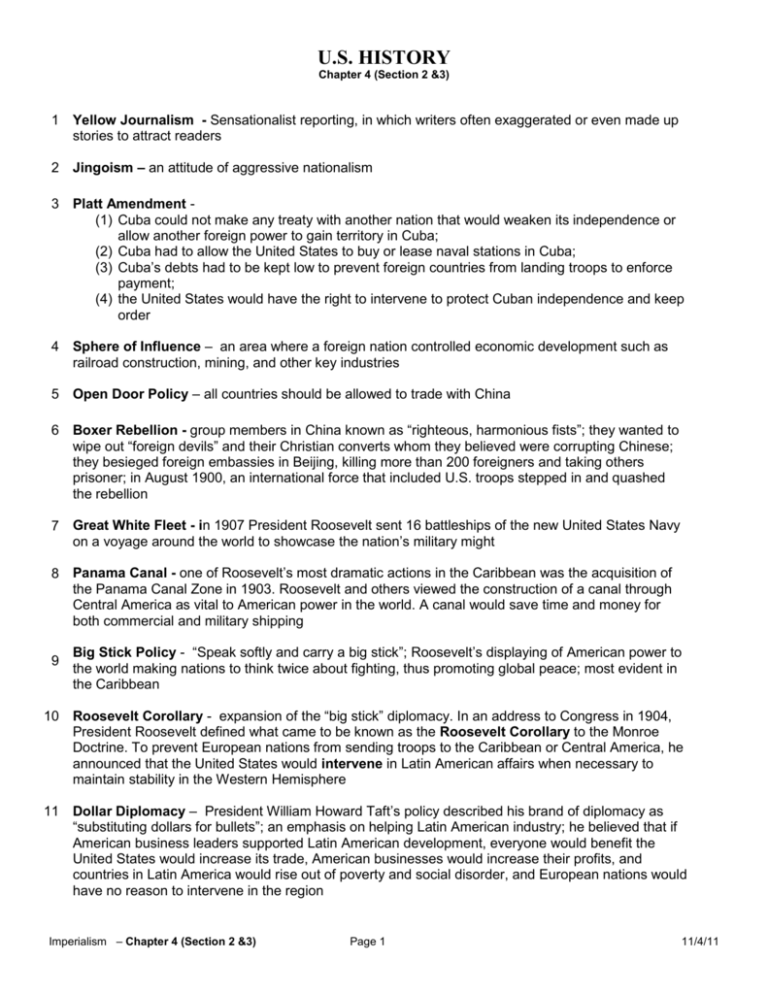
U.S. HISTORY Chapter 4 (Section 2 &3) 1 Yellow Journalism - Sensationalist reporting, in which writers often exaggerated or even made up stories to attract readers 2 Jingoism – an attitude of aggressive nationalism 3 Platt Amendment (1) Cuba could not make any treaty with another nation that would weaken its independence or allow another foreign power to gain territory in Cuba; (2) Cuba had to allow the United States to buy or lease naval stations in Cuba; (3) Cuba’s debts had to be kept low to prevent foreign countries from landing troops to enforce payment; (4) the United States would have the right to intervene to protect Cuban independence and keep order 4 Sphere of Influence – an area where a foreign nation controlled economic development such as railroad construction, mining, and other key industries 5 Open Door Policy – all countries should be allowed to trade with China 6 Boxer Rebellion - group members in China known as “righteous, harmonious fists”; they wanted to wipe out “foreign devils” and their Christian converts whom they believed were corrupting Chinese; they besieged foreign embassies in Beijing, killing more than 200 foreigners and taking others prisoner; in August 1900, an international force that included U.S. troops stepped in and quashed the rebellion 7 Great White Fleet - in 1907 President Roosevelt sent 16 battleships of the new United States Navy on a voyage around the world to showcase the nation’s military might 8 Panama Canal - one of Roosevelt’s most dramatic actions in the Caribbean was the acquisition of the Panama Canal Zone in 1903. Roosevelt and others viewed the construction of a canal through Central America as vital to American power in the world. A canal would save time and money for both commercial and military shipping 9 Big Stick Policy - “Speak softly and carry a big stick”; Roosevelt’s displaying of American power to the world making nations to think twice about fighting, thus promoting global peace; most evident in the Caribbean 10 Roosevelt Corollary - expansion of the “big stick” diplomacy. In an address to Congress in 1904, President Roosevelt defined what came to be known as the Roosevelt Corollary to the Monroe Doctrine. To prevent European nations from sending troops to the Caribbean or Central America, he announced that the United States would intervene in Latin American affairs when necessary to maintain stability in the Western Hemisphere 11 Dollar Diplomacy – President William Howard Taft’s policy described his brand of diplomacy as “substituting dollars for bullets”; an emphasis on helping Latin American industry; he believed that if American business leaders supported Latin American development, everyone would benefit the United States would increase its trade, American businesses would increase their profits, and countries in Latin America would rise out of poverty and social disorder, and European nations would have no reason to intervene in the region Imperialism – Chapter 4 (Section 2 &3) Page 1 11/4/11 Know how the United States interacted with the following during the time period 1880-1910 (think of imperialism and look up the following in Chapter 4/Sections1-3) Nations: Japan Hawaii Cuba Spain Puerto Rico Guam Philippines U.S. Samoa Colombia Panama China Creating A Nation – Chapter 4 (Section 1) Page 2 10/28/11
